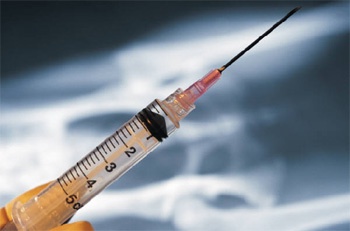Scots GPs are being targeted in a major survey to establish how they manage and how they view patients who are drug misusers
Findings from the University of Aberdeen study will inform policymakers behind drug service development.
They will also shed new light on levels of cocaine use in Scotland.
One in four GPs will be randomly selected in the study which is a follow up to a similar survey conducted by the University eight years ago.
They will be asked their opinions on a range of issues which include the effectiveness of drug misuse treatments; the likely impact of treating drug misusers on their other patients, practice and staff, and their personal attitudes towards drug misuse and misusers generally.
GPs will also be asked to estimate to what degree a range of factors is likely to influence their treatment of drug misusers. These include the patient's attitude, behaviour, age and type of drugs used.
Dr Catriona Matheson, Senior Research Fellow at the University's Department of General Practice and Primary Care, said: "We really hope we get a good response to our survey as a number of changes have taken place since then.
"These include the introduction of the new GP contract, as well as changes to drug services, which include the development of special training initiatives, directly aimed at GPs.
"There has also been a perceived increased in the misuse of psychostimulant drugs, such as cocaine and crack cocaine, although there are no real figures that show how many users are being seen in GP practices.
"A treatment called buprenorphine, which is a maintenance therapy for people who are dependent on heroin and is an alternative to methadone, has also been introduced so it will be interesting to see how many GPs are prescribing that."
Findings from the Chief Scientist Office funded survey should be known in October.
The previous survey had a 63% response rate and found a high level among GPs of involvement in the management of drug misuse. It also showed:
- 61% of responders said they were treating illicit drug misusers
- Methadone was the most common treatment option, but more than 40% of GPs appeared to be prescribing outside the recommended dosage range indicating a lack of confidence in prescribing methadone for some GPs
- Specific training in drug dependency treatment was associated with increased confidence in treatment
- GPs' main concerns about managing drug misusers in their practice were about the safety of their staff, other patients and themselves


